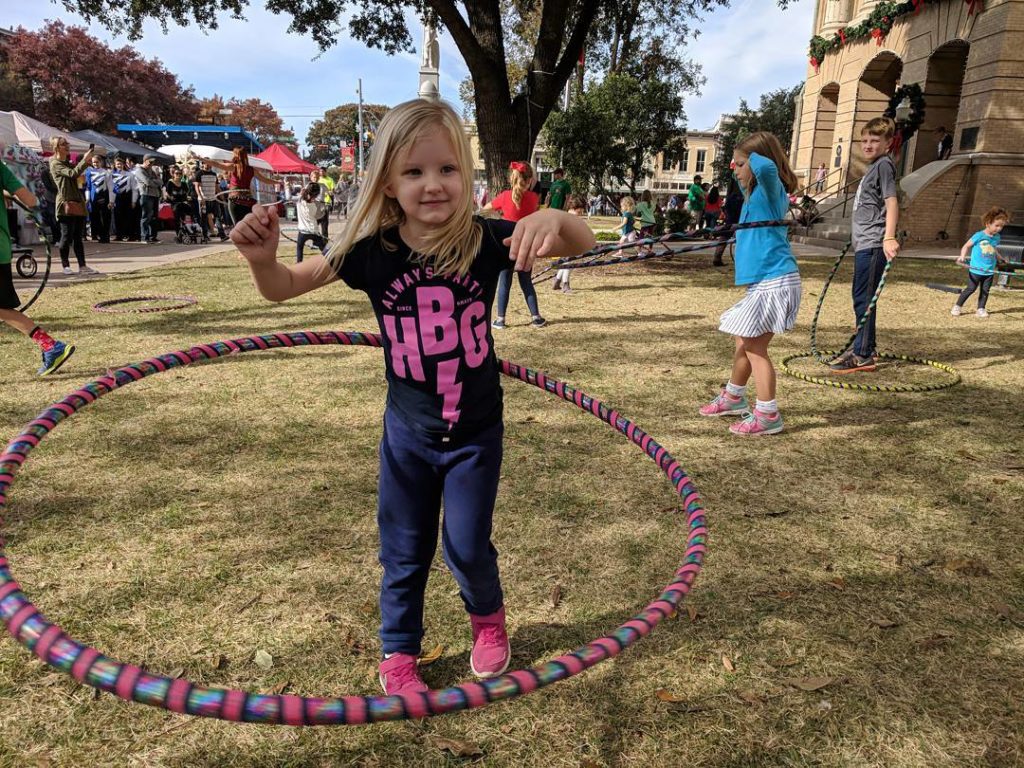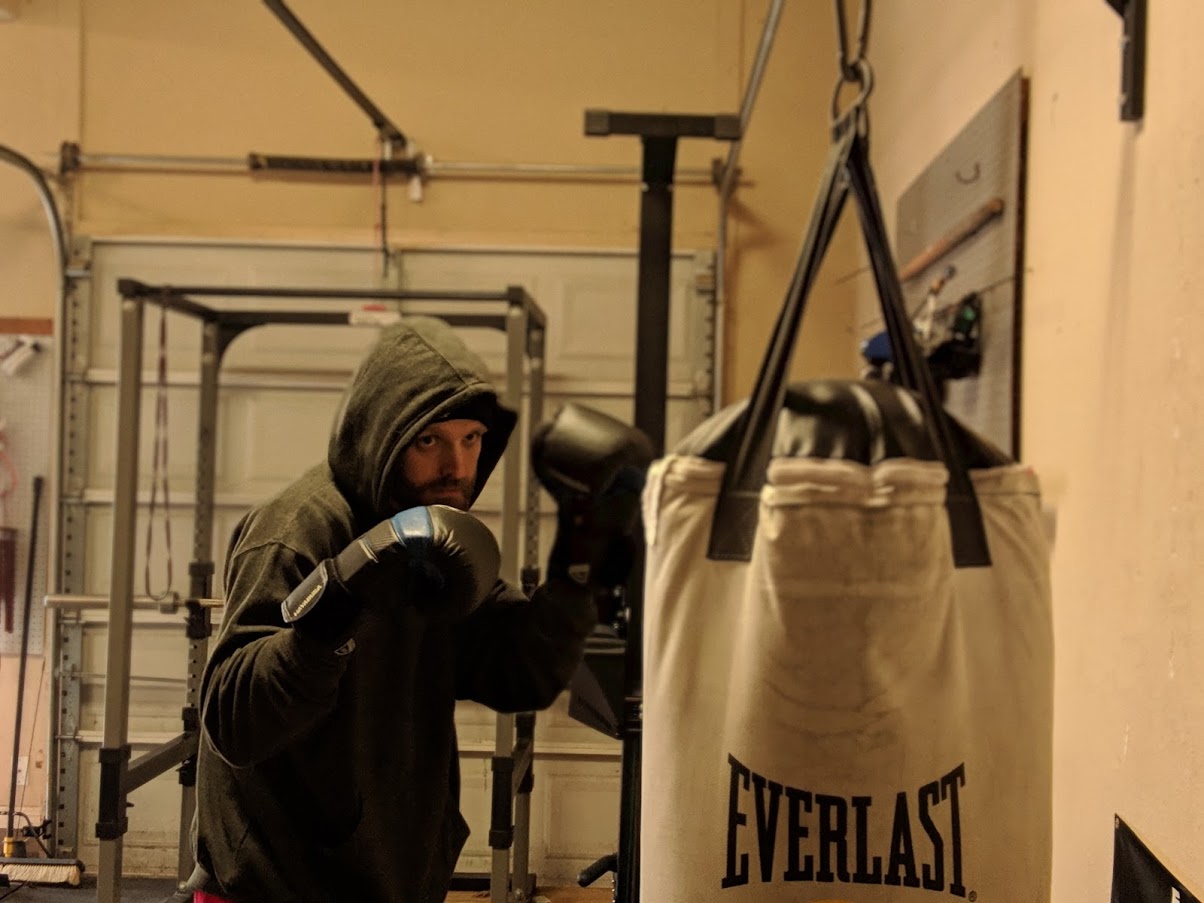Everything I threw just seemed to fall short. Always just out of range. It wasn’t like this footwork or these combinations had never worked before, it’s just that today they kept coming up short. I kept trying to find range with the jab and set up the cross or low kick. Every time I felt comfortable though, Jay (my sparring partner) would angle away from my punches, or step in and jam up my kicks. I couldn’t effectively push kick him either because I was so hesitant and he was so good at cutting those angles. I always felt like I was going first, and he was making me pay. Not the game I like to play. Muay Thai is a game that needs to be played aggressively, but I don’t thrive when I have to push the action constantly.
When the buzzer sounded, we touched gloves, hugged, took out our mouthpieces so we could talk it through and joke around. I told Jay how frustrated I felt at times in our round, and he said he could definitely sense it. He also shared that he was surprised that I hadn’t used a few favorite techniques of mine, since they are normally so effective. That’s when I unwittingly uttered something that would forever stick with me as an athlete, coach, father, and businessman from that point forward.
“I feel like I’m solving different problems now.”

In any endeavor – sports, academics, work, relationships – you will improve in it if you just keep doing it with even an ounce of mindfulness. When you start something new, there will very often be two phases that everyone is familiar with: First, you feel completely lost and incapable. This is thankfully a brief period. Second, you will experience a phase of rapid improvement. In the world of lifting weights, we call this the “newbie gains” phenomenon. Your mind and body are adjusting to the stress of new demands, and your brilliant hominid brain is starting to wire up more efficient pathways to execute the skills you are hammering on. Even moreso, these new neural pathways are helping you to acquire and integrate new skills related to the activity. Cooler still, the reward circuit in your brain (amygdala, nucleus accumbens, ventral tegmental area, pituitary gland) lights up and creates emotional, social, and physiological reinforcement for practicing and executing the activity. It’s an exciting time to say the least. This is the phase where you really “fall in love” with a task, hobby, or profession.
“The human body is a notorious energy miser.”
Then comes the next phase, which can best be described with the phase “the honeymoon is over.” This is the phase I realized I was in when Jay was shutting me down in Muay Thai (Note: Jay is an absolute murderer, so that had a lot to do with the shut down as well). The thrill of learning new skills and the big highs that come from practicing them were starting to wane. My brain was becoming accustomed to solving those problems, and had gotten very efficient at it. The thing about the reward circuit is that it costs energy to fire it off, and it costs even more energy to deal with the physiological response it causes. The human body is a notorious energy miser. So, if it can wire up a way for me to pull off a combination on the bag with minimal conscious thought, physical adjustment, and reward feelings afterwards, you can be damn sure it’s going to do that. While there is always room for improving the basics in any endeavor, the plain truth is that you will forever expend less energy in executing the basics once they become ingrained. As an aside, that’s why it’s so important to develop good fundamentals in anything; Going back to change them takes a lot of tedious undoing and redoing.
Inevitably, when you hit this “solving new problems” phase, you are going to feel like everything gets harder. This is where, statistically speaking, a lot of people quit. When the excitement fades so does their dedication. You have to shift your way of thinking in order to maintain your forward momentum. When everything gets harder, wear it as a badge of honor. You have graduated from beginner. It’s clear evidence that you have gained aptitude, and that you are on an upward trajectory in your chosen activity. When the new problems present themselves, you have to realize that you won’t be able to tackle all of them at the same time and make progress like you did when you first started. Why? Because the problems are WAY more difficult. You have to be methodical. Often this means attacking weaknesses in small groups, or even one at a time. You will have to be more mindful, more reflective, and more determined than you were up to this point.
“It only gets harder and moves more slowly from here on out.”

There’s good news and bad news at this point. The good news? You are on the path to mastery now. It looks similar to this all the way to the top. The bad news? It only gets harder and moves more slowly from here on out. You will likely spend more time solving a single problem, developing a single skill, or testing a single theory, than all the hours you spent in the beginner phase racking up accomplishments. Talent can change the velocity between individuals, but the course looks the same no matter what.
Enjoy it.


Nate
You reminded me of the commentary on plateaus in tennis in Infinite Jest:
https://99u.adobe.com/articles/16431/overcoming-plateaus-on-your-path-to-mastery
Different domain (from both yours here and David Foster Wallace’s), but I decided to try to get decent at chess a couple of months ago, and holy this phenomenon, Batman. Super progress the first month against easier opponents and lessons, and then snail’s pace, “I can’t even understand what people are doing with their moves” at higher levels. I would also add that day to day variability in your execution / concentration / motivation levels is another obstacle, since you can bounce around within a plateau and feel like youar eregressing, let alone failing to progress.
Anyways, nice post!